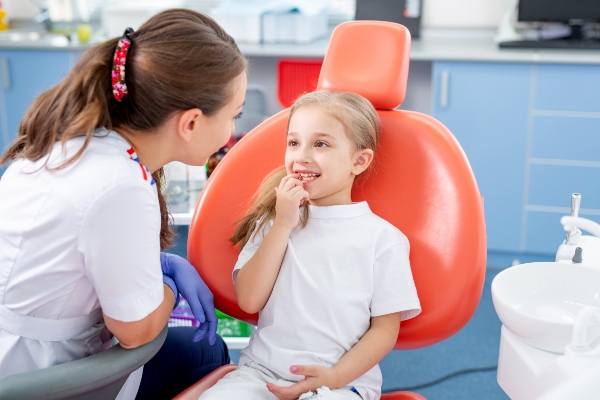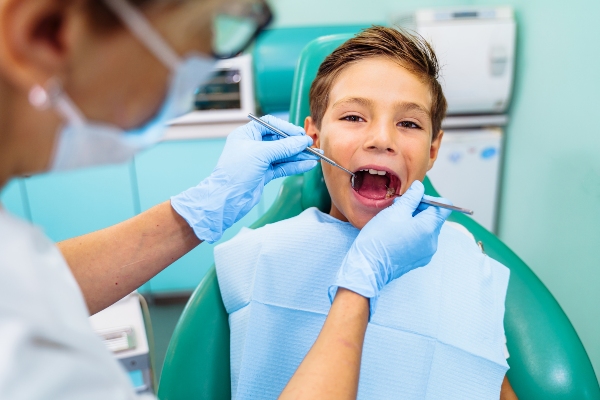 Once teething starts, you should pay close attention to your child's teeth to avoid tooth decay, cavities, and other oral health problems. A dentist specializing in pediatric dentistry might advise against pacifiers and other items that might interfere with the healthy development of their oral tissues. Sucking on a pacifier is common among infants and toddlers, who frequently find comfort.
Once teething starts, you should pay close attention to your child's teeth to avoid tooth decay, cavities, and other oral health problems. A dentist specializing in pediatric dentistry might advise against pacifiers and other items that might interfere with the healthy development of their oral tissues. Sucking on a pacifier is common among infants and toddlers, who frequently find comfort.
Why the dentist discourages pacifiers
Dentists are aware of the dangers of pacifiers. For generations, parents have relied on pacifiers to keep their children quiet, prevent public screaming, aid teething, and encourage sleep. Their purpose has made pacifiers indispensable to many working parents. Dentists, on the other hand, might advise against its use.
For the first few years of a child's life, pacifiers and infant bottles do not damage their teeth. Pacifiers' relaxing benefits outweigh their drawbacks initially. However, long-term usage of pacifiers might lead to dental health problems in children. When a youngster develops more teeth, the adverse effects of using a pacifier become apparent.
Although most youngsters quit using pacifiers alone, a dentist's intervention may be necessary in some cases. The reason is that pacifiers might interfere with a child's normal oral and dental development. Using a pacifier for an extended period can alter a child's oral cavity development, increase their risk of ear infections, and alter their teeth alignment. Orthodontic complications will require substantial dental work. The dentist may suggest using an oral device if the pacifier habit persists.
The following are some of the reasons a dentist might discourage pacifier usage:
Malocclusion
A significant danger of prolonged pacifier usage is malocclusion. The child's teeth may not align correctly when the mouth is closed. When children use pacifiers over three, this problem becomes more pronounced. A child's oral health might deteriorate if the issue is not addressed. This condition might even affect chewing and speaking.
Infections
It is also possible to get an oral infection by sucking on a pacifier. The pacifier may inflict Candida and other bacterial species if parents do not adequately clean and sterilize it. The use of latex in pacifiers is a significant problem. However, even with thorough cleaning and sterilization, there is always some danger.
Otitis media
Babies that use pacifiers are more likely to suffer from otitis media, which is a weird but true finding. This condition refers to a buildup of fluid in the middle ear. In addition, the Eustachian tube may become dysfunctional if a youngster suffers an altered tooth structure. To avoid otitis media, parents should not give their children pacifiers, according to a dentist in pediatric dentistry.
The bottom line
Crooked teeth or bite issues might result from a long-term and regular sucking habit. The more time your kid spends on pacifier use, the more likely they will require orthodontic treatment. According to the American Academy of Pediatric Dentistry, pacifier usage should be discouraged at age three. If you have additional questions, book an appointment with the pediatric dentistry office.
Request an appointment or call Hudson Valley Pediatric Dentistry at 845-363-4177 for an appointment in our Middletown office.
Recent Posts
A child dentist can help your child achieve better dental and general health. Regular visits allow your child to get used to dental checks, tools, and equipment. Dental fear disappears, and the young patient can continue having a bright, painless smile. Here are what parents like you should look forward to during child dentist appointments.Choosing…
Cavity treatment for kids is essential for a child’s oral health. Dental decay can cause discomfort, causing the child to lose focus at school. It can even result in low self-esteem and malnutrition. Treating cavities can improve your child’s general health. Here are effective techniques for cavity treatment for kids.There are cases when fillings cannot…
Parents play a crucial role in their children's tooth care by ensuring their children get started on the right path to optimal dental health. This involves overseeing children's tooth care at home while also helping them develop healthy dental habits and ensuring they see a pediatric dentist regularly.Parents will need to keep their child's mouth…


